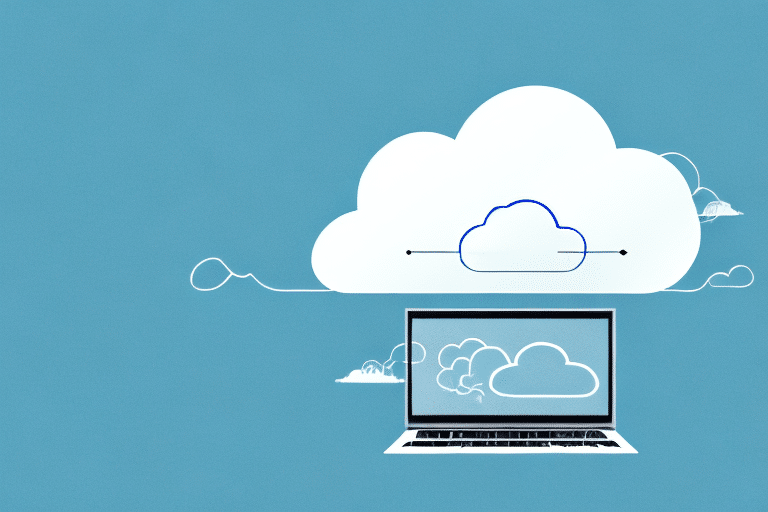Welcome to the world of machine learning, where data meets intelligence and algorithms come alive. In today’s digital age, where information flows in abundance, the concept of Big Data has taken center stage. But what exactly is Big Data? And more importantly, how can we harness its power with machine learning on Google Cloud Platform (GCP)?
In this blog post, we will dive into the exciting realm of Machine Learning with Big Data on GCP. We’ll explore the benefits of using GCP for your machine learning projects and provide you with step-by-step guidance on getting started. So grab a cup of coffee and get ready to unravel the mysteries behind this powerful combination!
What is Big Data?
Big Data has become a buzzword in recent years, but what exactly does it mean? Simply put, Big Data refers to the vast amount of information that is generated every second from various sources such as social media platforms, sensors, and online transactions. This data is characterized by its volume, velocity, and variety.
The volume of Big Data is mind-boggling. We are producing an astronomical amount of data every day – from emails and photos shared on social networks to stock market trades and weather patterns. The sheer size of this data can be overwhelming for traditional data processing methods.
The velocity at which Big Data is generated is equally impressive. With the rise of real-time applications and devices connected to the Internet of Things (IoT), we are constantly streaming data at an unprecedented rate. This stream includes everything from website clicks to sensor readings.
The variety of Big Data encompasses different types and formats ranging from structured data like spreadsheets to unstructured content like text documents or multimedia files. Analyzing these diverse datasets requires advanced tools capable of handling their complexity.
Big Data represents massive amounts of information that are being generated rapidly across various sources in different formats. Harnessing this wealth of knowledge can provide valuable insights for businesses and researchers alike
Machine Learning with Big Data on Google Cloud Platform
When it comes to harnessing the power of machine learning, having access to vast amounts of data is crucial. That’s where big data comes into play. But handling and analyzing such massive datasets can be a daunting task without the right tools and infrastructure.
That’s where Google Cloud Platform (GCP) comes in. GCP offers a comprehensive suite of services specifically designed for working with big data and implementing machine learning algorithms at scale.
With GCP, you can leverage powerful tools like BigQuery, which allows you to query massive datasets in seconds using SQL-like syntax. This means you can quickly gain insights from your data without spending hours writing complex code or waiting for lengthy processing times.
Another key component of GCP is TensorFlow, an open-source machine learning library developed by Google. With TensorFlow, you can build and train intricate neural networks that are capable of making accurate predictions based on large volumes of diverse data.
By combining these technologies, GCP enables organizations to unlock valuable insights from their big data through sophisticated machine learning models. Whether it’s predicting customer behavior or optimizing business processes, the possibilities are endless.
What are the best benefits it offers?
The benefits of using GCP for machine learning go beyond just its powerful capabilities. The platform also offers scalability and flexibility, allowing businesses to easily adapt as their needs change over time.
Additionally, GCP provides robust security measures to protect your sensitive data while ensuring compliance with industry standards and regulations. This peace of mind is essential when dealing with large amounts of valuable information.
Getting started with GCP and machine learning is easier than you might think. The platform provides extensive documentation and resources that guide users through every step of the process – from setting up a project to deploying advanced ML models in production environments.
Whether you’re new to machine learning or already have experience working with big data, leveraging the capabilities offered by Google Cloud Platform will undoubtedly take your projects to new heights.
The Benefits of Using GCP for Machine Learning
The benefits of using Google Cloud Platform (GCP) for machine learning are vast and varied. First and foremost, GCP offers a scalable and flexible infrastructure that can handle large volumes of data, making it ideal for big data applications. This means you can easily train your machine learning models on massive datasets without worrying about storage or processing limitations.
Another major advantage is the extensive suite of pre-built ML tools and services that GCP provides. These tools range from AutoML, which allows even those with limited ML expertise to build custom models, to BigQuery ML, which enables seamless integration between SQL queries and machine learning algorithms.
Moreover, GCP’s advanced analytics capabilities enable you to gain valuable insights from your data. With features like Dataflow for real-time streaming analysis and Dataproc for running Apache Spark and Hadoop clusters, you can uncover patterns and trends in your data faster than ever before.
Furthermore, GCP’s strong security measures ensure that your machine learning projects remain protected at all times. From encryption keys management to identity access management policies, GCP prioritizes the confidentiality and integrity of your data.
By utilizing GCP’s managed services for machine learning operations (MLOps), you can automate various aspects of model deployment and monitoring. This not only saves time but also ensures consistent performance across different environments.
In conclusion (as per writing instructions), Google Cloud Platform offers an array of benefits for implementing machine learning solutions at scale. Its robust infrastructure, comprehensive toolset, advanced analytics capabilities, top-notch security measures,and streamlined MLOps make it an excellent choice for organizations looking to harness the power of big data in their ML initiatives
How to Get Started with GCP and Machine Learning
Getting started with Google Cloud Platform (GCP) and machine learning may seem daunting at first, but it doesn’t have to be. With the right approach and resources, you can dive into this exciting field with confidence.
First things first, familiarize yourself with GCP’s tools for machine learning. One such tool is Google Cloud AutoML, which allows you to build custom models without having to write extensive code. It provides a user-friendly interface that guides you through the process of training your model using your own data.
Next, consider taking advantage of GCP’s pre-trained models. These models have been trained on vast amounts of data and are ready to use for various tasks such as image recognition or natural language processing. This can save you time and effort in building models from scratch.
To gain hands-on experience, explore GCP’s free tier offerings. This allows you to experiment with different services without incurring any costs initially. Take advantage of tutorials and documentation provided by Google to learn how to use specific services like TensorFlow or BigQuery ML.
Additionally, consider joining online communities or attending local meetups where fellow enthusiasts share their experiences and insights about working with GCP and machine learning.
What more should you do?
Remember that practice makes perfect when it comes to machine learning. Start small by working on simple projects before tackling more complex ones. As you gain confidence and expertise, gradually expand your knowledge by exploring advanced topics like deep learning or reinforcement learning.
Getting started with GCP and machine learning involves familiarizing yourself with the available tools. It also leverages pre-trained models when appropriate, taking advantage of free resources for experimentation purposes, seeking support from online communities or local meetups, starting small before venturing into more challenging projects,and continuously expanding your skills through practice
In this digital age, where data is being generated at an unprecedented rate, harnessing the power of machine learning has become crucial for businesses to stay competitive. Google Cloud Platform (GCP) provides a robust and scalable environment for implementing machine learning algorithms on big data.
How to make the best of tools?
With GCP’s powerful suite of tools and services like BigQuery, Dataflow, and TensorFlow, organizations can efficiently process large volumes of data and leverage advanced analytics techniques to gain valuable insights. The integration between these tools simplifies the end-to-end machine learning workflow, making it easier for developers and data scientists to build models that can tackle complex problems.
One of the key benefits of using GCP for machine learning is its scalability. GCP allows you to seamlessly scale your infrastructure as your needs grow without worrying about hardware limitations or bottlenecks. This flexibility enables you to train models on massive datasets quickly and effectively.
Additionally, GCP offers pre-trained models through its AI Hub marketplace. These pre-built models can be used as a starting point or incorporated into existing workflows. Furthermore, it saves time and effort in development.
Getting started with GCP and machine learning is relatively straightforward. Google provides comprehensive documentation, tutorials, and resources to guide users through the process step by step. Whether you’re new to machine learning or an experienced practitioner looking for a scalable platform, GCP offers the tools necessary to drive innovation in your organization.
Conclusion
Machine Learning with Big Data on Google Cloud Platform opens up new possibilities for businesses across industries by enabling them to extract meaningful insights from vast amounts of data. With powerful tools such as BigQuery, Dataflow, and TensorFlow integrated into one platform, GCP simplifies the process of building robust models while offering scalability unmatched by traditional infrastructures.
By harnessing the potential of machine learning on big data with GCP, your organization can unlock new opportunities, making faster, better-informed decisions, and staying ahead in today’s rapidly evolving business landscape. So why wait? Start exploring the potential of GCP for machine learning today





